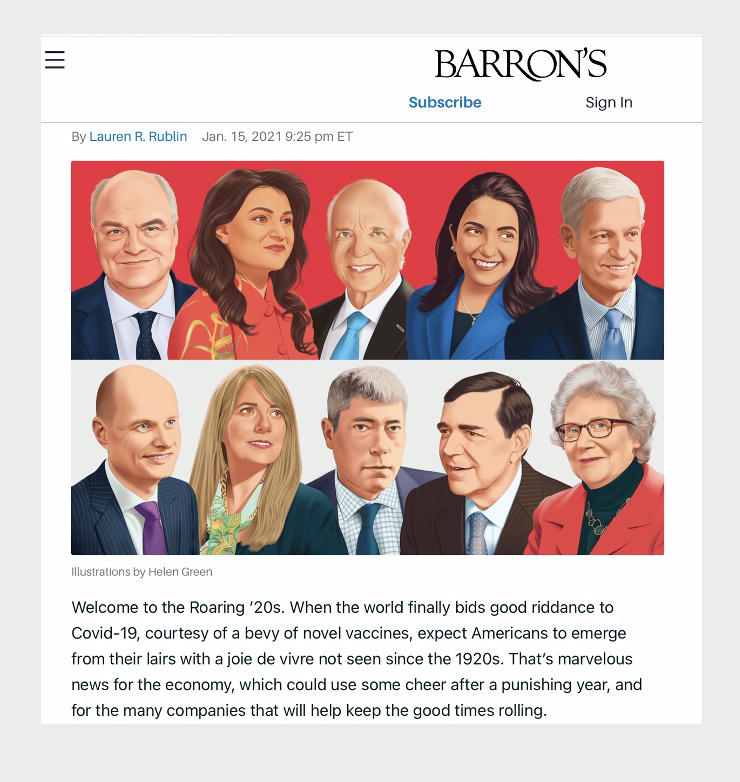I wrote a post a couple weeks ago called “Ten Predictions for Optimists in 2021.” Not to get too serious about it, because I wrote the post to bring some, shall we say, lightheartedness, to the current state of affairs. But I couldn’t help but take some pride in my prediction abilities when, early this Saturday morning, I read a very informative Barron’s Roundtable discussion by some really smart people. It was entitled in part, “Welcome to the Roaring ’20s” (subscription required, though I was able to access the whole piece in my Apple News app).
One of the participants in this roundtable of market watchers and investment gurus was a guy named Henry Ellenbogen, Chief Investment Officer at Durable Capital Partners. He’s in the center, bottom row, above. (One of his firm’s claims to fame is that it was an early investor in DoorDash, which IPOed in late 2020 and is up substantially. And they just invested in another big round for the Brit counterpart, Deliveroo.) Here are some of Henry’s insights from the roundtable:
One of the most fundamental trends that will come out of 2020 is that America will spread out. The first suburbanization trend started in 1810. I would argue that we are now in the fifth phase, and it is going to be as powerful, if not more so, than the first four. Knowledge workers are going to be able to separate economic opportunity from where they live. A lot of tech companies now talk about being time-zone companies as opposed to geographically based. Working from home, even for people who have to go to the office two or three days a week, will allow people to move to the suburbs and more distant places, lowering their cost of living and enhancing their quality of life. The services that accompany these workers are also going to spread out. The productivity gains will be significant. Before Covid, 10% of Americans spent two hours a day commuting to work, and 40% spent an hour. You’re going to return this time to people in the form of enhance productivity.
But what about tech companies lowering compensation levels for people who move from high population centers? Will that cause some people to rethink such moves?
If people can really work remotely, competition in the marketplace will take care of compensation discrepancies. If you want to have the best employees and they can live where they want, you are going to have to pay them based on a national wage.
What do you expect from the economy in 2021? (a question from Lauren Rublin, Barron’s Senior Managing Editor)
There is an underlying assumption that we get decoupled from Covid by the vaccines. If that happens, there is going to be a tremendous pent-up desire for experiences and consumption. Starting this summer, we might have six months of New Year’s Eve parties.
There you go, my optimist friends. Start getting the champagne ready!


Leave a Reply